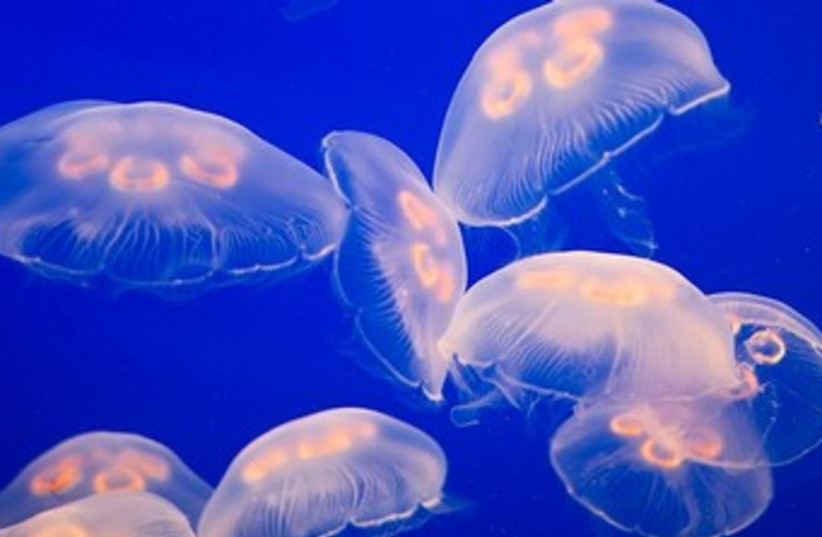Jellyfish can learn from past experiences despite having no brain – study
Jellyfish were able to learn where obstacles were placed and actively avoid them.
Despite not having a brain, jellyfish do have the ability to learn from past experiences in much the same way that other animals do, according to a new report published on Saturday.
The peer-reviewed study, published in the journal Current Biology, was based on observations of the Caribbean box jellyfish’s ability to navigate obstacles.
The jellyfish, which grow to be no larger than a fingernail, have 24 eyes embedded throughout their body. Their vision helps them to navigate the mangrove swamps that they inhabit.
You can teach an old jellyfish new tricks
The researchers decorated a controlled tank environment with grey and white stripes, to mimic the conditions the jellyfish would find in their natural habitat. The jellyfish were observed for 7-and-a-half minutes, where they were seen regularly bumping into the grey stripes of the tank’s wall. However, by the end of the observation, the jellyfish maintained a 50% further distance from the tank’s walls. The findings suggest that jellyfish can learn from experience through visual and mechanical stimuli.
“Learning is the pinnacle performance for nervous systems,” said author Jan Bielecki of Kiel University, Germany. To successfully teach jellyfish a new trick, Bielecki explained, “it’s best to leverage its natural behaviors, something that makes sense to the animal, so it reaches its full potential.”

“If you want to understand complex structures, it’s always good to start as simple as you can,” said author Anders Garm of the University of Copenhagen, Denmark. “Looking at these relatively simple nervous systems in jellyfish, we have a much higher chance of understanding all the details and how it comes together to perform behaviors.”
How are jellyfish learning without a brain?
The researchers isolated the jellyfish’s visual sensory center, the rhopalia, which was found to have a crucial role in the underlying process of jellyfish’s associative learning. Each rhopalium had 6 eyes and generated pacemaking signals that controlled the pulsing movement of the creature. When the frequency of the pulses spiked, the jellyfish would swerve.
“It’s surprising how fast these animals learn; it’s about the same pace as advanced animals are doing,” said Garm. “Even the simplest nervous system seems to be able to do advanced learning, and this might turn out to be an extremely fundamental cellular mechanism invented at the dawn of the evolution nervous system.”


No comments:
Post a Comment
Stick to the subject, NO religion, or Party politics